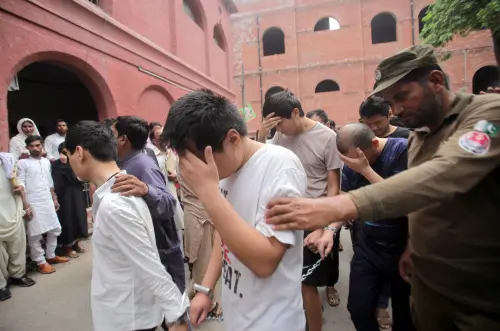2023
In countries where jihadi groups have gained control over territory and populations, states face the challenge of dealing with individuals accused of association with those groups. Governments have too often responded in heavy-handed ways, penalizing broad segments of local populations suspected of having supported the group, often on the basis of thin or non-existent evidence. Such excessively punitive and dragnet approaches risk backfiring by exacerbating local grievances, conflating victims with perpetrators, and laying the groundwork for future violence.
On October 5, the Foreign Policy program at Brookings and the United Nations University’s Centre for Policy Research (UNU-CPR) presented a discussion of alternative strategies and justice issues for countries affected by jihadi violence. Experts presented the findings of three fieldwork-based case studies of Nigeria, Somalia, and Iraq, which analyze these states’ approaches to accountability and rehabilitation of Boko Haram, al-Shabab, and Islamic State affiliates. Panelists also discussed the potential application of transitional justice tools; conditional amnesties; defectors programs; and disarmament, demobilization, and rehabilitation approaches to transitions away from conflict in such settings.
Panelists included Lana Baydas, an independent human rights expert; Vanda Felbab-Brown, senior fellow with the Center for 21st Century Security and Intelligence at Brookings; and Cale Salih, research officer at UNU-CPR. Landry Signé, a David M. Rubenstein Fellow in the Africa Growth Initiative at Brookings, provided introductory remarks and moderated the discussion. After the program, panelists took questions from the audience.
Agenda
-
October 5
-
Panelists
Panelist
LBLana Baydas Independent Human Rights Expert Vanda Felbab-Brown Director - Initiative on Nonstate Armed Actors, Co-Director - Africa Security Initiative, Senior Fellow - Foreign Policy, Strobe Talbott Center for Security, Strategy, and Technology @VFelbabBrownCSCale Salih Research Officer, Centre for Policy Research - United Nations University
Vanda Felbab-Brown Director - Initiative on Nonstate Armed Actors, Co-Director - Africa Security Initiative, Senior Fellow - Foreign Policy, Strobe Talbott Center for Security, Strategy, and Technology @VFelbabBrownCSCale Salih Research Officer, Centre for Policy Research - United Nations University
-

